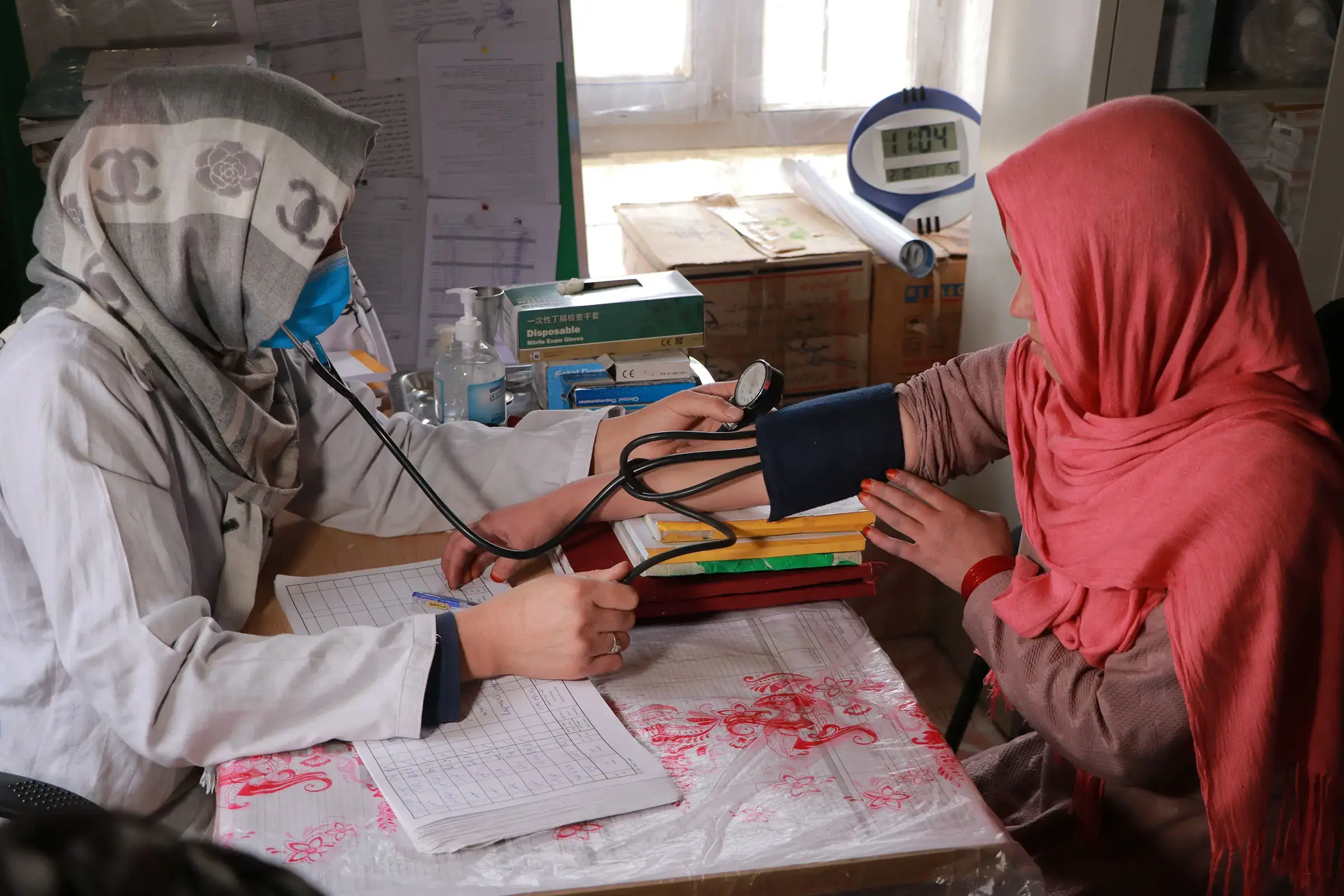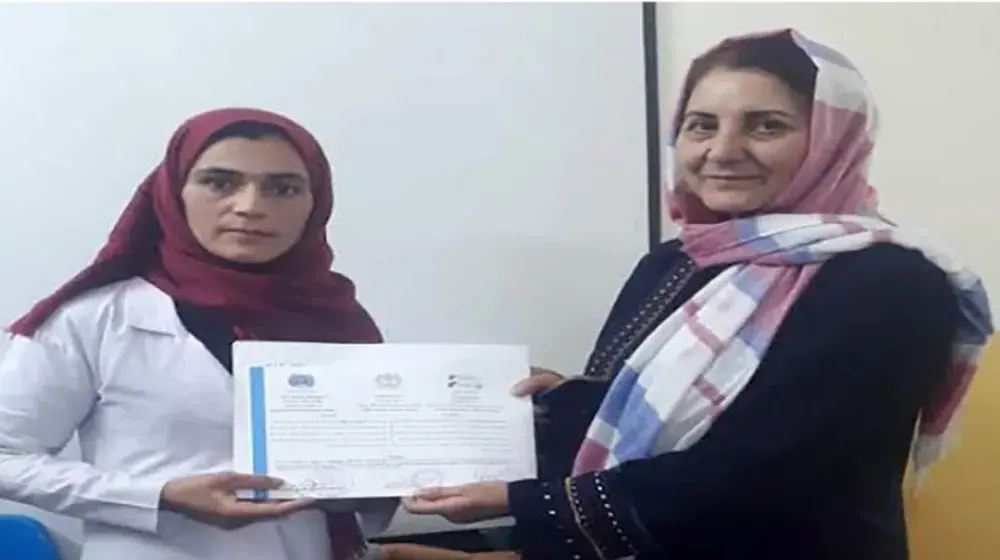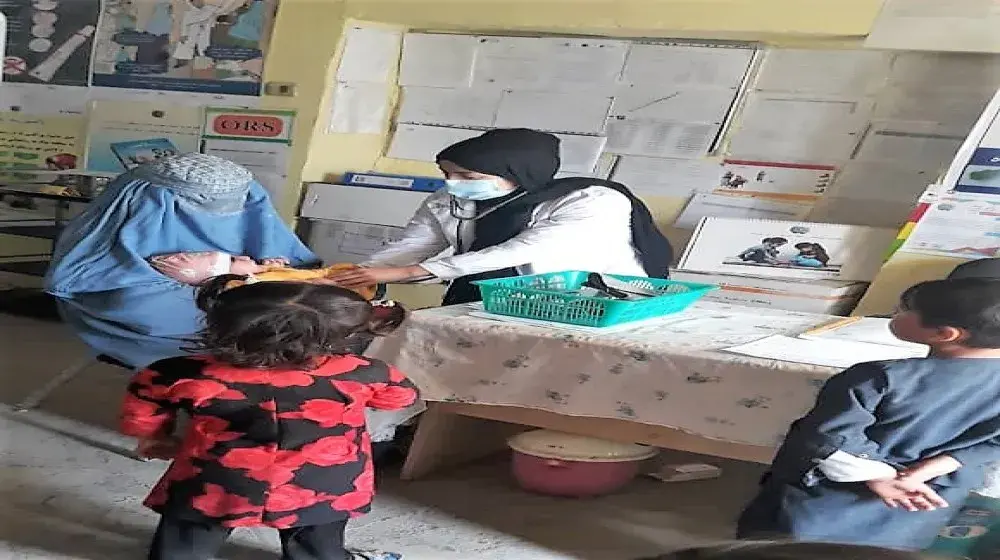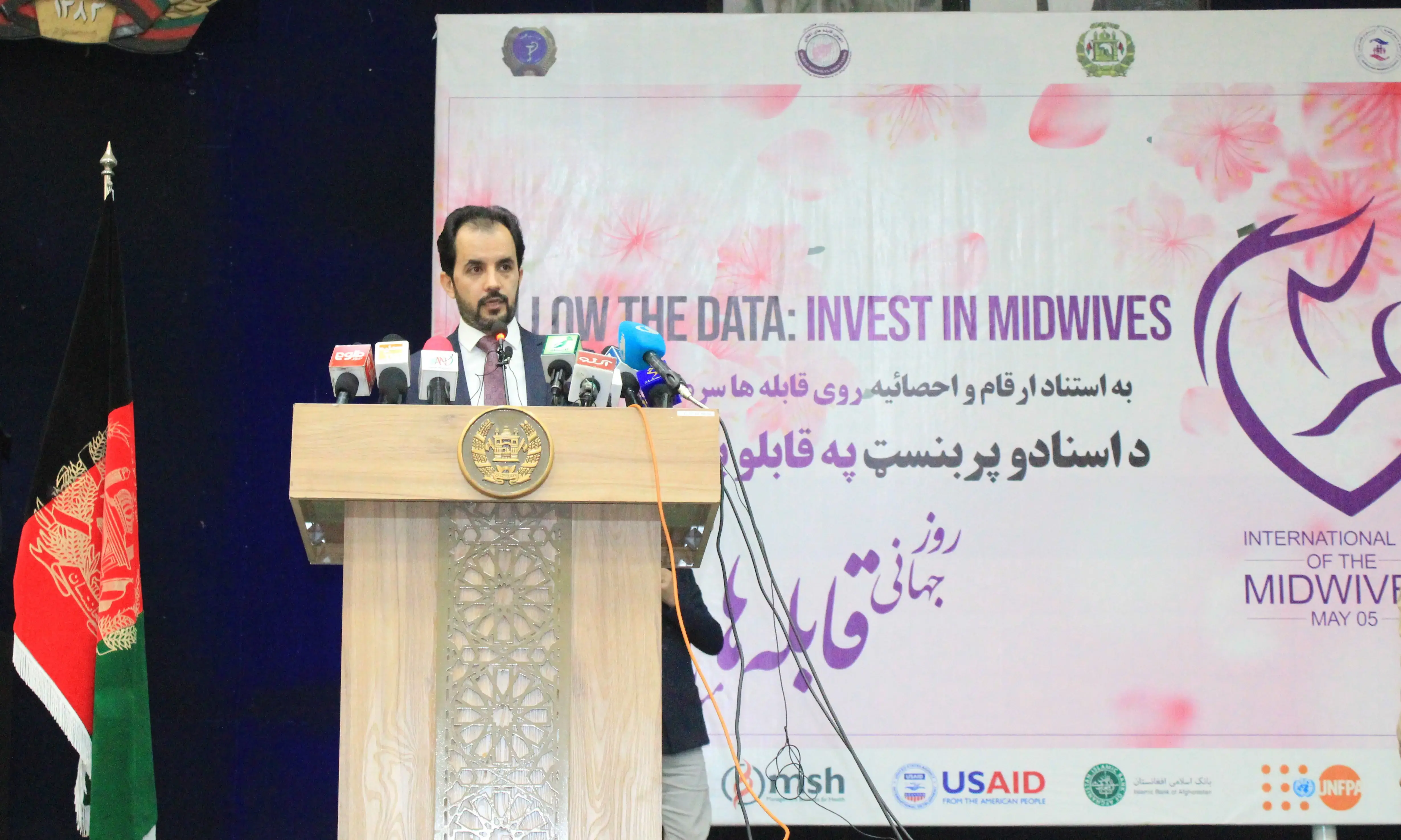Since 2002, UNFPA has worked with the MoPH to rebuild and revitalize the midwifery profession, in a way which is sustainable, culturally appropriate, and meets the standards laid down by the International Confederation of Midwives (ICM).
This has involved training a cohort of women to provide maternal and newborn care across the country, both in health facilities and in communities. The availability of trained midwives was a vital contributor to the precipitous drop in maternal mortality enjoyed by Afghanistan in the past decade.
Today, UNFPA works with the Government and the midwifery profession to establish a Midwives and Nurses Council of Afghanistan that will improve standards of practice and develop a robust licensing system. Working with the Ministry of Education and the Afghan Midwives Association, UNFPA has secured approval for the definition of higher education standards for midwives, and supported the development of a four-year undergraduate programme in midwifery for both new and existing midwives to be fully in line with ICM standards. This programme, the first in the region, is now being introduced at Kabul Medical University and the Zawul Institute.
Family Health Houses: Health care in the community
Developing the structures to ensure that women have access to family planning and reproductive health advice and services is a priority for UNFPA Afghanistan - this includes the so-called ‘white areas' of the country, which are at least 10 km from the nearest health facility and include 43 percent of the population.
In these areas, UNFPA is piloting the Family Health House model. These are community-based health structures serving 1,500-4,000 people and staffed by a trained Community Midwife recruited from the local population who provides reproductive, maternal, new-born, and child health services.
The Family Health Houses are intended as sustainable community-led initiatives, where candidates for Community Midwives are nominated and supported by residents, who also bear a third of the costs. The Community Midwives receive 26 months of training and are supported by male and female volunteer community health workers who provide health information and public awareness activities to their counterparts in the community. They also treat some basic illnesses and refer patients and clients to Family Health Houses and high-level health facilities. Whilst the Community Midwives are in training, their communities are served by a mobile support team. Once the midwives take up their posts, the mobile teams provide support services, including vaccinations.
The Family Health Houses has proven to be highly successful in reaching communities who don't have access to the Basic Package of Health Services of Afghanistan. UNFPA has opened 80 Family Health Houses to date in Bamiyan, Daikundi and Faryab provinces and nine mobile support teams are operational including in Herat and Badakshan.





